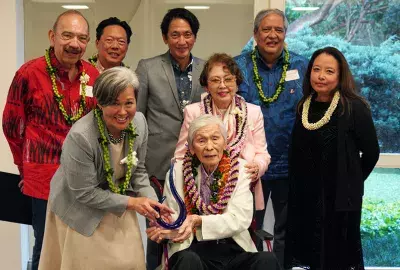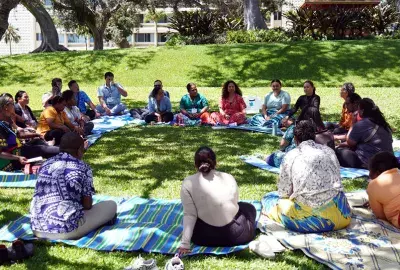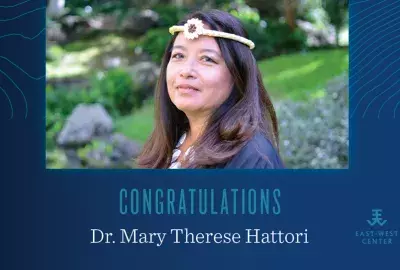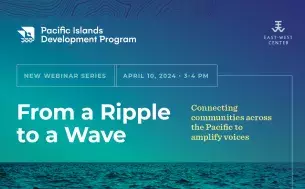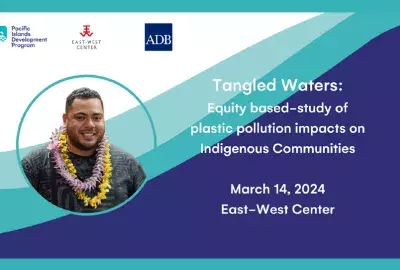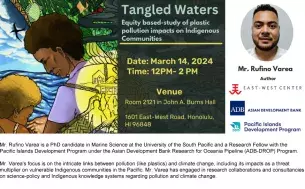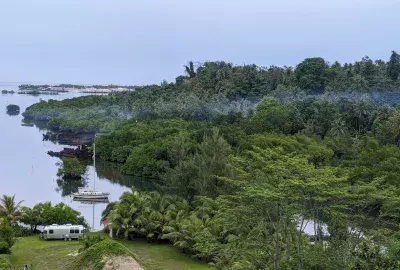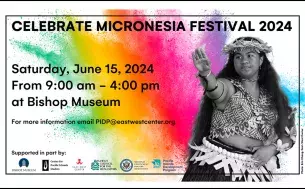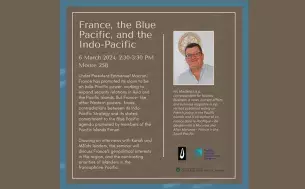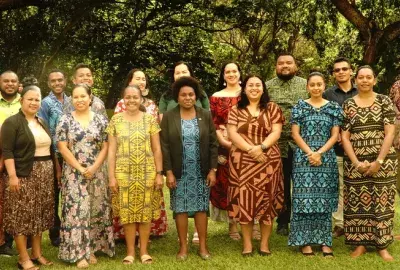Since 1980 the Pacific Islands Development Program (PIDP) has served the nations and peoples of the Pacific through innovative capacity building, interchange among regional leaders, and policy-relevant research on priority issues.
Featured Activities
Our Programs
Explore
Pacific Islands Development Program
Enhancing quality of life in Pacific communities
In collaboration with a variety of research and programmatic activities throughout the Center, the Pacific Islands Development Program focuses on leadership training and capacity development, regional economic and policy analysis, use-inspired research on climate change impacts and mitigation, women’s empowerment, journalism and professional exchange tours, and more. PIDP is also broadening relationships with governments and partner organizations in the Pacific, and seeking to engage EWC’s extensive alumni network in the region in new and deeper ways.
Founded in 1980 at the request of Pacific Islands leaders under the visionary guidance of Fiji Prime Minister Ratu Sir Kamisese Mara and Hawai‘i Governor George Ariyoshi, the program conducts a broad range of activities to enhance quality of life in Pacific communities.









